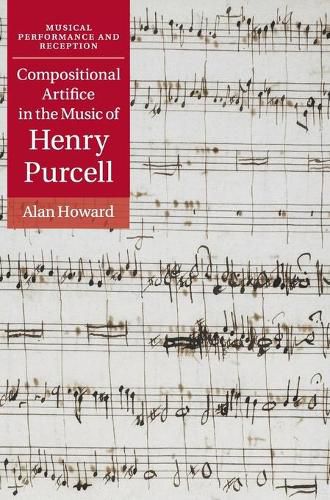Readings Newsletter
Become a Readings Member to make your shopping experience even easier.
Sign in or sign up for free!
You’re not far away from qualifying for FREE standard shipping within Australia
You’ve qualified for FREE standard shipping within Australia
The cart is loading…






Fugal invention has proved a successful line of analytical inquiry in recent studies of repertoires from Josquin to J. S. Bach. Alan Howard brings similar insights to the music of Henry Purcell, and proposes the first analytical approach to his music to examine compositional methods alongside historically contemporary theory, focusing particularly on Purcell’s ‘artificial’ approach to imitative counterpoint. Through this methodology Howard challenges previous responses to Purcell’s music that portrayed him as fundamentally conservative. This study offers fresh insights into the musical world in which Purcell lived and worked and situates Purcell’s compositional concerns in the broader context of notions of artifice in Restoration culture. Howard thereby offers both a fresh analytical approach - to Purcell’s early instrumental works and to his later concerted vocal music - and a critique of the reception history surrounding the fantazias and sonatas in particular.
$9.00 standard shipping within Australia
FREE standard shipping within Australia for orders over $100.00
Express & International shipping calculated at checkout
Fugal invention has proved a successful line of analytical inquiry in recent studies of repertoires from Josquin to J. S. Bach. Alan Howard brings similar insights to the music of Henry Purcell, and proposes the first analytical approach to his music to examine compositional methods alongside historically contemporary theory, focusing particularly on Purcell’s ‘artificial’ approach to imitative counterpoint. Through this methodology Howard challenges previous responses to Purcell’s music that portrayed him as fundamentally conservative. This study offers fresh insights into the musical world in which Purcell lived and worked and situates Purcell’s compositional concerns in the broader context of notions of artifice in Restoration culture. Howard thereby offers both a fresh analytical approach - to Purcell’s early instrumental works and to his later concerted vocal music - and a critique of the reception history surrounding the fantazias and sonatas in particular.